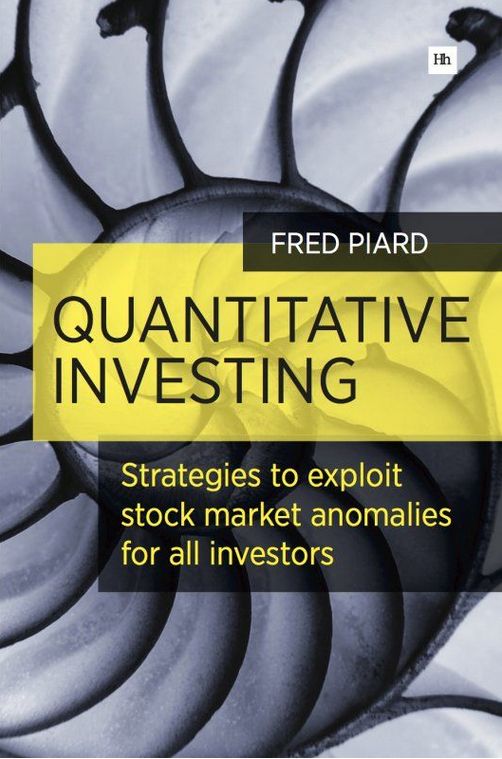
Something to Read - Quantitative Investing: Strategies to exploit stock market anomalies for all investors
Quantitative Investing: Strategies to exploit stock market anomalies for all investors
by
Fred Piard

This book provides straightforward quantitative strategies that any
investor can implement with little work using simple, free or low-cost
tools and services. But what exactly is quantitative investing? There
are various possible definitions of quantitative investing, but the
author defines it as: "Identifying reasonable and measurable hypotheses
about behaviours of the financial market so as to make investment
decisions with an acceptable confidence in expected returns and risks."
The main advantages in using quantitative models are that they: - make
the investment process independent of opinions and emotions (the most
important factor for an individual investor), and - make it reproducible
by anyone at any time (the most important factor for a fund) With a set
of good strategies, quantitative investing allows one to act in the
market at specific pre-planned times. It is possible to work on this
just once a week or month, and ignore charts and the news. It removes
most of the doubts and emotions with the discipline of keeping a
long-term vision and sensible money management. This book will show you
how.
FRED PIARD gained extensive experience in the software industry,
information systems consulting and marketing before discovering an
interest in the financial markets. Self-taught in this field, he puts
into practice what he learnt from his previous activities to build his
own methodology. From his years in research he has the ability to
combine a systemic point of view and an analytic approach. As a software
architect he knows that the things that work the best in the long term
are the simplest. As a consultant he experienced the real economy
through various sectors: energy, banking, healthcare, manufacturing and
public administration. And he learned from marketing that human group
behavior can sometimes be modeled, but never predicted. He has a PhD in
computer science, an MSc in software engineering and an MSc in civil
engineering.


